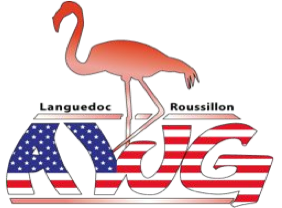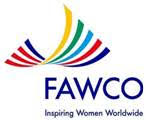The Anomaly (original title L’Anomalie) by Hervé Le Tellier (presented by Denise)
Hervé Le Tellier majored in mathematics during his university years and then worked as a scientific journalist for 10 years, two areas of interest that are clearly apparent in his 2020 book L’Anomalie.
Le Tellier started to write as a young boy, to escape a difficult childhood. His first book, published in 1991 when he was 34, was a collection of short articles written for the magazine L’Evenement du Jeudi. For these articles, he had made it a point of honor to meet the required length—2000 characters—EXACTLY, not 1999 nor 2001 characters. In so doing he exhibited the trait that would make him a natural fit for the exclusive literary research club OuLiPo (for Ouvroir de littérature potentielle). Le Tellier also has a doctorate in linguistics and is a specialist in constrained writing (a literary technique in which the writer is bound by some condition that forbids certain things or imposes a pattern), which is the founding principle behind OuLiPo (of which Le Tellier is the current president).
The Anomaly recounts the fate of several passengers of an Air France Paris to New York flight in 2021. The same exact plane, with crew and passengers, lands in New York twice, once in March and then again in June. Consternation reigns in the control tower, the FAA and in various governmental agencies when the second plane appears out-of-nowhere in the skies. An obscure Protocol 42, written years before by two graduate students in mathematics, is put into play, mobilizing an army of academic, military and government personnel.
The book is written in three parts: in the first we meet the various protagonists, in the second the handling of the ‘anomaly’ unfolds, while in the third section the author relates the confrontation of the doubles with themselves. (One can imagine all of the emotions that this unleashes!) This confrontation with oneself, and finding out what one is ready to negotiate and what one cannot give up, is the essence of the novel and the author’s motivation for the writing of this book.
While AWG readers thought that the first part of the book, with the character development, was quite interesting, several found themselves losing interest in the second half of the book. Starting the book with the portrayal of a hired killer was also off-putting for some of us, though this character was the favorite of more than one reader. The author uses different forms of expression and calls upon different genres to represent the various characters. We found them to be well-developed and their actions/reactions consistent with their background story.
The author also plays with the time sequence; each chapter has a date but the chapters are not chronological, making the story tricky to figure out on first reading. Those who re-read the book discovered new elements on second reading.
In the second part of the book, the experts convoked by the government search for an explanation to the ‘anomaly’. Here the author has based his story on a 2003 scholarly paper by the philosopher Nick Bostrom of Oxford University, which argues that we are living in a virtual reality, a simulation by a superior intelligence. The anomalous event would then be a test of our simulated beings.
Despite the numerous implications of this simulation hypothesis, the author generally refrains from obvious lecturing though he does make some points. He compares the reaction of the US government to that of the Chinese one, which has earlier experienced the same ‘anomaly’ but has kept it completely secret (and apparently eliminated the doubles).
In the US, revealing the ‘anomaly’ to the public through the Stephen Colbert Show leads to a disastrous reaction from the fundamental religious community. Meanwhile, in France, another passenger also ‘comes out’ to the public, though the consequences for him are far more agreeable than for the US passengers, who are forced to assume new identities to escape the wrath of evangelists.
The question of religion, and whether living in a simulation makes any difference in our lives, was touched upon. Whether we live in a physical world created by an intelligence that some call God, or whether this simulation is a virtual reality created by a superior intelligence of the posthuman kind, is irrelevant to our experiences and to how we live our lives. (Though I did read a comment that worshiping a computer is perhaps not quite as motivational and uplifting as worshiping God.)
The ending of the book, in the form of a calligram (text arranged in such a way that it forms a thematically related image), seems to indicate that we have failed the test.
Not content to simply recount a story, the author has written a book that is extremely rich in social commentary, satire, and humor. This was appreciated by AWG readers, especially when they realized who is the US President portrayed (I would say caricatured except that the portrayal is too true-to-form). A number of real-life personalities make an appearance in the book, and a knowledge of the French literary scene would probably enhance the reading of The Anomaly. It is a book to read again and again, to discover new meaning each time.

